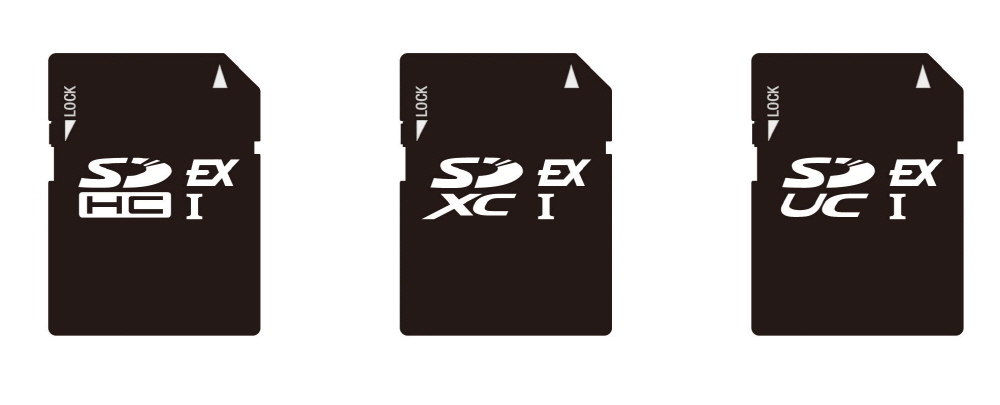
The SD Association, which leads the design and development of the SD card standard, adopted the PCI Express 4.0 standard and announced SD 8.0, a new standard that achieved 4GB/sec transmission speed.
The full-size SD Express memory card that satisfies the SD 8.0 standard uses the NVMe (NVMe Express) upper layer protocol that provides an advanced memory access mechanism, while maintaining backward compatibility as ever.
Mats Larsson, senior analyst at Futuresource, a market research firm, said that SD Express will realize faster transfer speeds using faster PCI Express and NVMe architecture, and that SD memory cards will be adopted in a wider range of devices. By combining standard technologies that can be used, it is possible to easily use the advantages of removable storage media in future product designs in a new form, he explained.
SD 8.0 realizes a 4GB/sec high-speed transfer rate, enabling larger data transfer than ever before. SD cards adopting the SD 8.0 standard can be active in speed-sensitive applications running on SD cards or mobile terminals, evolving game systems, and multi-channel IoT devices by shooting ultra-low-speed video, 8K video, and 360-degree video. have.
The SD Association has dramatically increased the speed of SD Express memory cards to increase the storage options it provides to device manufacturers and system developers, and said SD 8.0 will expand the possibilities of high-performance solutions using removable memory cards. PCI-SIG, which adopted the PCI Express standard, also welcomed the SD Association’s adoption of the PCI Express standard and dual lanes.

SD 8.0 adopted PCI Express 4.0 and NVMe version 1.4. Two types of transfer speed options will be provided for SD cards, each with a PCI Express 3.0×2 or PCI Express 4.0×1 architecture, each with a speed of 2GB/sec and 4GB/sec. The SD card adopting PCI Express 4.0×1 uses the form factor defined in the SD 7.0 standard, and the number of pins is 3 rows if the architecture supports 2 GB/sec in 2 pins and dual PCI Express lanes.
The SD Association makes it easier for companies adopting the SD 8.0 standard to adopt SD Express to help reduce product development costs using existing test equipment. The SD 8.0 specification allows system developers to use PCI Express and NVMe technologies such as multi-queue host memory buffers that do not use the bus mastering locking mechanism. Related information can be found here .


















Add comment